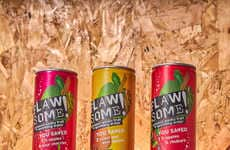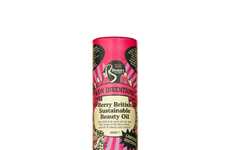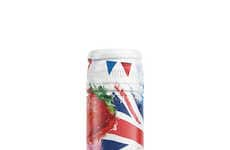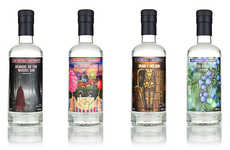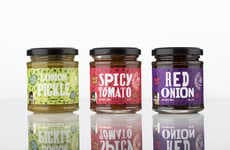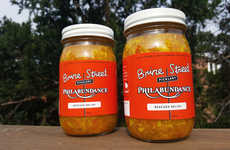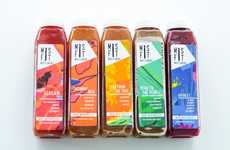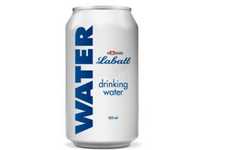



Brands in the beverage space use "imperfect" produce as main ingredients
Trend - Beverage brands in both alcohol and wellness-related industries are using "imperfect" fruits and vegetables to create their products. This shift can be observed in everything from imperfect fruit and vegetable-made sparkling waters, to cocktails made from repurposed waste.
Insight - Consumers are increasingly aware of the amount of food waste that's produced by modern consumption habits, and in an attempt to mitigate this issue, they're turning to products and services that repurpose food waste in different forms. The shift to reformatting imperfect foods makes them more aesthetically palatable for the average consumer, while also catering to those who intentionally purchase eco-consciously.
Insight - Consumers are increasingly aware of the amount of food waste that's produced by modern consumption habits, and in an attempt to mitigate this issue, they're turning to products and services that repurpose food waste in different forms. The shift to reformatting imperfect foods makes them more aesthetically palatable for the average consumer, while also catering to those who intentionally purchase eco-consciously.
Workshop Question - How could your brand reformat its product in a way that's eco-friendly?
Trend Themes
1. Repurposing Imperfect Produce - Repurposing imperfect fruits and vegetables is driving innovation in beverage brands and resulting in sustainable products.
2. Awareness of Food Waste - Increasing consumer awareness of food waste is driving demand for products and services that repurpose discarded food into palatable and sustainable forms.
3. Mindful Approach - A mindful approach to food and beverage creation that minimizes waste and transforms edible items is gaining traction in the industry.
Industry Implications
1. Food and Beverage - The food and beverage industry can repurpose imperfect produce and implement sustainable practices to reduce waste and appeal to eco-conscious consumers.
2. Sustainability - The sustainability industry can partner with food and beverage companies to implement sustainable practices that minimize waste and reduce environmental impact.
3. Social Responsibility - The social responsibility industry can support initiatives that promote the repurposing of imperfect produce and sustainability practices in the food and beverage industry.

